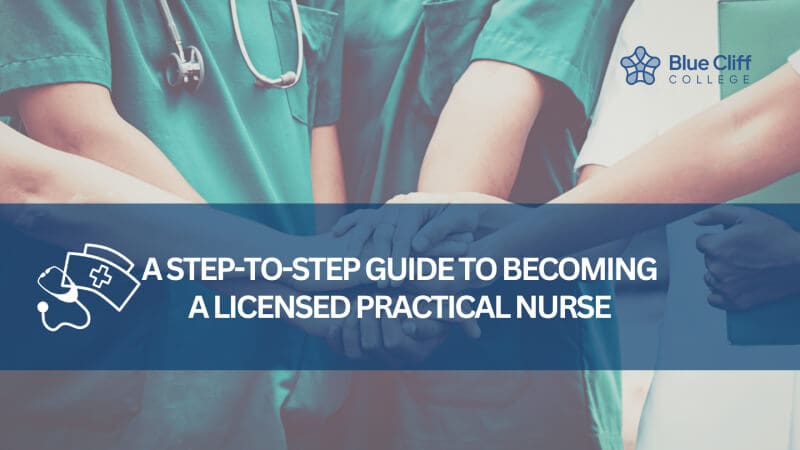Licensed Practical Nurses (LPNs) play an indispensable role in healthcare delivery, providing a wide range of nursing care services under the supervision of registered nurses and physicians. Their duties encompass diverse responsibilities such as monitoring patients’ vital signs, administering medications, and assisting with wound care management. LPNs are trained professionals who work diligently in hospitals, clinics, long-term care facilities, and other healthcare settings, where they offer crucial support to patients throughout their healthcare journeys.
In an ever-evolving healthcare landscape characterized by shifting demographics and advancing medical technologies, the demand for skilled nursing professionals like LPNs continues to escalate. With the aging population and increasing healthcare needs, LPNs are instrumental in bridging the gap between patient care demands and available resources. Their presence ensures that patients receive timely and effective nursing interventions, promoting their overall well-being and enhancing healthcare outcomes. As frontline caregivers, LPNs embody compassion, competence, and dedication, playing a pivotal role in delivering holistic care and support to individuals across various stages of life and health conditions.
Table of Contents
6 Most Common Nursing Myths Debunked
1. LPNs Aren’t Real Nurses
Let’s clear this up – LPNs are absolutely real nurses. They go through intense training and earn their license to provide crucial nursing care. While they work under the supervision of RNs or physicians, their role is vital in the healthcare system.
2. Nurse Practitioners Are Not Qualified to Diagnose or Treat Patients
This one’s a big misconception. Nurse practitioners (NPs) are super qualified. With advanced education and training, they’re fully equipped to diagnose, treat, and manage patients’ health issues. They often provide primary care services independently, playing a key role in patient health.
3. LPNS are Just RNs Who Couldn't Cut It
False alarm! LPNs and RNs have different roles and career paths in nursing. LPNs are all about hands-on patient care, working closely with the healthcare team to ensure patients receive the best treatment possible. It’s not about “cutting it”; it’s about fulfilling different needs in the healthcare system.
How Technology Has Changed The Career Of Nursing
4. There's a Lot of Workplace Drama
As for workplace drama, well, every job has its ups and downs, but nursing workplaces are all about professionalism and teamwork. Despite the occasional challenge, nurses are united in their commitment to providing top-notch care to patients.
5. Only Women are LPNs
And let’s not forget – nursing is for everyone! LPNs come from diverse backgrounds and walks of life, representing all genders. It’s about passion for patient care and making a positive impact in people’s lives, regardless of gender.
6. Schooling Is Long & Restrictive
While nursing education may seem daunting, LPN programs offer a quicker path to licensure compared to RN programs. These programs equip students with the skills and experience needed to confidently step into their roles in healthcare settings. So, if you’re considering a career in nursing, know that there’s a path for you to make a meaningful difference in the lives of others.
Is There No Room for Advancement in LPN?
While LPNs may have fewer advancement opportunities compared to registered nurses (RNs), there are still avenues for career growth. LPNs can pursue additional education and training to become RNs, advance into supervisory or managerial roles within healthcare facilities, or specialize in specific areas of nursing practice. While the advancement options may be somewhat limited compared to RNs, LPNs can still progress in their careers with dedication and further education.
How Long Is The Licensed Practical Nurse Program?
15 months
Do LPNs Make Good Money?
In terms of salary, LPNs typically earn less than RNs due to differences in education and scope of practice. However, LPNs still make competitive wages compared to many other professions, and their earning potential can increase with experience, additional certifications, and specialization. While RNs generally command higher salaries, LPNs can still achieve financial stability and career satisfaction through their work in healthcare.
Challenges of Being an LPN
As an LPN, you’ll encounter several key challenges:
- Managing Patient Dynamics: LPNs are tasked with navigating challenging patient interactions and delicate family dynamics, making a delicate balance of professionalism and empathy to ensure optimal care and support.
- Adapting to Long and Unpredictable Shifts: LPNs often find themselves working extended and irregular hours, including nights, weekends, and holidays, to meet the demands of patient care, requiring resilience and adaptability to maintain high-quality service delivery.
- Navigating Flexibility in Schedules: LPNs frequently encounter sudden changes in their work schedules due to staffing shortages or unforeseen circumstances, adding a layer of stress and uncertainty to their professional lives that demands flexibility and quick adjustments.
- Juggling Experience and Education: LPNs often grapple with finding an equilibrium between their extensive practical experience and the increasing emphasis placed by employers on formal education and credentials, highlighting the importance of continuous professional development and lifelong learning.
- Managing Emotional Strain: LPNs frequently confront emotionally taxing situations, such as providing support to grieving families and coping with the loss of patients, making emotional resilience and coping strategies to navigate these challenging aspects of their role necessary.
- Mitigating Health Risks: LPNs face potential health hazards due to proximity to sick patients and exposure to hazardous materials, underscoring the importance of adhering to safety protocols and maintaining infection control practices.
- Adapting to Technological Advancements: LPNs must stay abreast of rapid advancements in healthcare technology, requiring ongoing training and upskilling to effectively utilize new tools and systems in their practice.
- Addressing Physical Demands: LPNs endure physically demanding work environments, often spending prolonged periods on their feet, which can lead to physical strain and potential health issues.
- Navigating Staff Shortages: LPNs are frequently challenged by staffing shortages, particularly during the recent pandemic, resulting in increased workloads and heightened stress levels, highlighting the importance of effective teamwork and support networks within healthcare settings.
- Choosing the Right Educational Path: Selecting a suitable LPN program requires careful research and consideration of individual needs and preferences. This makes comprehensive planning and informed decision-making in pursuing a successful nursing career essential.
Kickstart Your Career
If you have a passion for helping people, a career in the medical industry might be right for you. You will not only be able to join the workforce quickly with our diploma program but there is also a high demand for LPN positions. At Blue Cliff College, you will learn everything you need to pass your exam and start the journey to the career of your dreams.
Enroll now or contact us to learn more about this licensed practical nursing program and others that Blue Cliff College offers.




